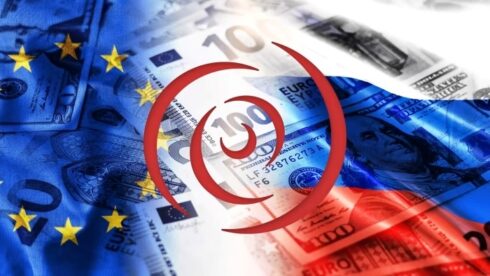Written by Ahmed Adel, Cairo-based geopolitics and political economy researcher
The Spanish proposal to give Kiev the benefits of Russian assets frozen in the EU generates confusion about their amount and creates doubt about its legality and presumed risks to financial stability. In addition, the EU will ruin its image as a destination for foreign assets if it continues this pursuit to finance Kiev with Russian assets.
At the end of October, Ursula von der Leyen said that the European Commission is still working on a proposal to seize the profits derived from Russian state assets frozen in the EU and transfer them to Ukraine for its post-war reconstruction. According to her, the value of frozen Russian sovereign assets amounts to €211 billion, whilst according to estimates by authorities in Belgium, the country where most of them are deposited, the Russian assets frozen there could yield around €3 billion in annual benefits.
Spain, the country that assumes the rotating presidency of the EU for this semester, has continued to advance Leyen’s plan. Madrid estimates that the benefits of Russian Central Bank reserves frozen in EU countries could generate between €15 billion and €17 billion for Kiev by 2027.
However, the idea generated great scepticism in some member states, such as France and Germany. The timeliness of the push is doubted, and there is a risk to the commitment to help Ukraine. The European Central Bank also fears that the initiative could affect the stability and reputation of the euro.
According to diplomatic sources from Politico magazine, the reluctance of several countries regarding the Spanish proposal lies in the conviction that it may take years before the money reaches Kiev. The calculation applied by Spain to conclude the amount of benefits has also generated confusion.
The idea of reinvesting tied-up Russian assets and using the profits to support Ukraine is not new and was first proposed by the European Commission in late November 2022. The Commission estimated then that rebuilding Ukraine would require at least €600 billion, but the cost has likely skyrocketed since then.
Under international law, state assets enjoy immunity from execution. Regardless of the changes that are introduced in legislation, the EU cannot confiscate these reserves, which are distributed throughout the bloc and other G7 countries. In fact, the European Commission considers them immobilised since the ECB cannot use them.
Russian entities, for instance, could claim that they are entitled to some of the profits generated from the investment of the frozen assets and challenge the decision in both the General Court of the European Union and the European Court of Human Rights, Francis Bond, a leading practitioner on international financial sanctions matters from the Macfarlanes law firm told Euronews.
In addition, Russia will have the right to go to the International Centre for Settlement of Investment Disputes, which is the arbitration court of the World Bank, where these types of disputes are settled. This would not bode well for Spain, which has a long history of losing these types of cases.
The European Commission intends to provide Kiev with €17 billion in subsidies and another €33 billion in low-interest loans until 2027 to avoid Ukraine’s bankruptcy. Amid the EU’s economic recession, the confiscation and sale of frozen Russian assets emerges as a possible way to raise funds for Ukraine at a time when they are scarce for community policies.
But given the complication, Spain’s proposal has been received with astonishment by several foreign ministries, where, according to Politico, they also doubt that Madrid understands the thinking of the rest of the EU. Whether Madrid’s real objective is to divert extra contributions from the Ukraine crisis towards other budgetary areas, such as migration and EU competitiveness, is questioned.
A source in Brussels assumes that the Spanish government would be willing to use the funds promised to Ukraine for other expenses, such as migration. In any case, the content of the proposals will only be discussed in depth on December 14 and 15 during the EU leaders’ summit.
Most of Russia’s frozen foreign exchange reserves are in the EU, specifically at Euroclear, a financial security clearing and settlement house based in Brussels that acts as a depository. It is estimated that it holds around €180 billion in Russian securities. Luxembourg also hosts another clearinghouse with frozen Russian assets, Clearstream. But both Belgium and Luxembourg want guarantees that they will not be forced to assume all the legal and financial risks of an unprecedented measure.
Russian assets frozen under EU sanctions are divided into private assets and public assets. The private assets owned by individuals and companies are worth around €18.9 billion, including yachts, boats, helicopters, real estate, paintings, and other works of art. Of the 35 assets located in Spain, only 11 are listed in the name of people sanctioned by the EU. On the other side are public assets owned by state entities, specifically the €211 billion of international reserves owned by the Central Bank of Russia.
When they reach maturity, intermediaries reinvest them and generate a profit. But they can also generate losses. And, as Francis Bond explains, if the investments lose money, the European Commission would have to guarantee the Russian assets with public money or risk an avalanche of legal action from the asset owners. Given these conditions, attempts to redirect Russian assets and profits to Kiev is nothing more than a pipedream that will not eventuate unless the entire European Union wants to ruin its reputation and trustworthiness across the world.






